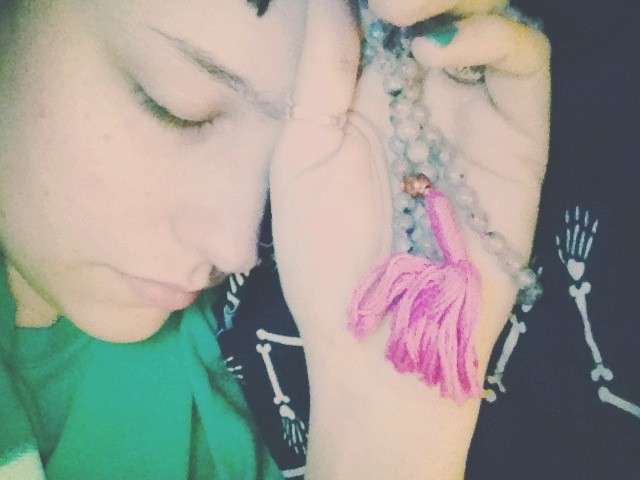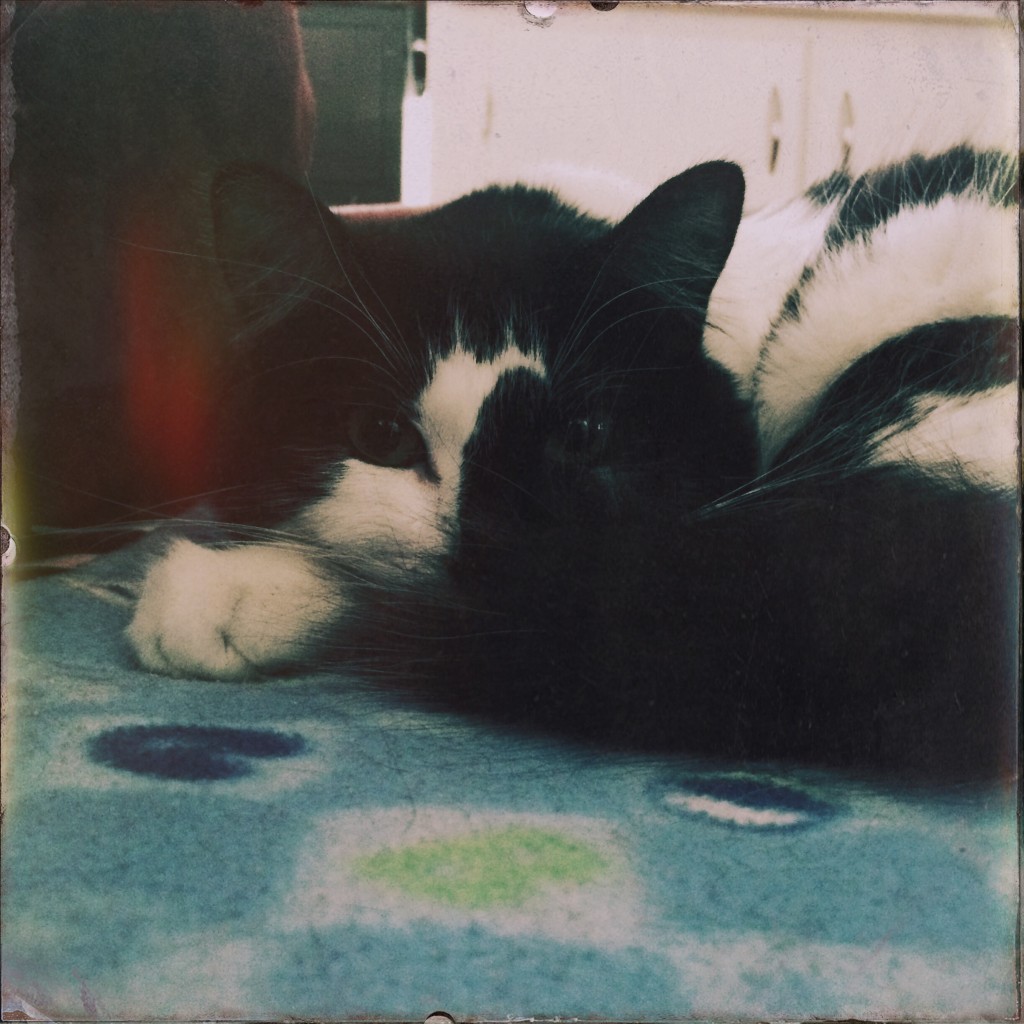
Around 1999 I was diagnosed with bi-polar disorder. I had been super depressed, dealing with a lot of personal things, and I was getting to a point of feeling like anything and everything was hopeless. I gave in one morning at work and called my insurance company to get referred to a psychiatrist. Before the week was out I had a diagnosis and was on medication.
I hated the medications. I went through three different ones in the two months that I took them and they were awful.
Yes, two months. That’s was it. I couldn’t take the pills and how they made me feel. I also felt like they were dulling my energy and my ability to do spiritual, psychic and magical work.
The doctor wasn’t helpful either. It turned out I really didn’t need a psychiatrist but a psychologist. I didn’t know the difference at the time but all I knew was I was over these pills.
A few years later I saw another doctor who re-diagnosed me as having dysthymia, also known as Persistent Depressive Disorder.
My first response to this was “Do you have to give me medication? Is there anything else I can do?” I was very fortunate that this doctor was open to alternative and natural healing and was happy to start pointing me in other directions that would allow me to use natural healing techniques such as herbs, supplements and spiritual practice to deal with my depression.
I’m not “healed” from my depression and I never will be. It will always be something I have to be mindful of and work with. But these tips helped me and they may be able to help you too if you deal with any form of depression.

I will always have to deal with bouts of sadness and depression different from what people might otherwise think of as just “being down”. At least now I’ve found ways to manage it on my own naturally.
Change Up Your Diet
What you eat has an impact on more than just your body. It impacts your emotions as well.
Whole grains, fruits, and vegetables keep your blood sugar level stable which has a big effect on your mind and state of mind. Fish also provides your body with essential fats and protein that can help to boost your mood, but if you don’t like eating fish taking fish oil can still be helpful.
There has been a suggested link between processed foods, simple sugars and depression. These foods can contribute to overall poor health that can really put a strain on your mind and mood.
Drinking lots of water helps to flush out toxins that can build up and lower your energy levels and mood. And you may want to look into taking a multivitamin, especially if your diet isn’t the best right now. You may be missing important vitamins, minerals and nutrients that could help boost your mood.
Move Move Move!
You hear it all the time and your response might very well be “Yeah, alright but not today.” Exercise does lift your mood! Nobody is asking you to run a marathon or do a round of crossfit but getting outside for a walk around the block or doing even 5 minutes of walking on the spot at home can help get things moving. Personally I love yoga when I’m feeling down. It’s a gentle way to get into your body, to disconnect from what’s rolling around in your head and elevate your mood and spirit.
Stop + Smell The Roses {aka Aromatherapy}
One of my other favorite things to use for my depression is aromatherapy. Using essential oils that are uplifting can have a big effect on your mood. When inhaled different molecules from the plants, herbs and flowers in the oils interact in different ways with your brain and respiratory system. Some of these can, over time, dramatically shift your mood. Citrus based scents work great for depression. I love using sweet orange and lemon when I’m taking a down turn.
Nap and Get Enough Sleep at Night
Back when I was going through my sessions with my doctors I was told that I needed to sleep less because I was using sleep as an escape. In part, that might have been true and to a point I guess I still do that from time to time. Napping shouldn’t be a habit but when you feel sluggish in the middle of the day it drags your mood down. So a little 30 minute rest can help recharge you mentally and emotionally.
Start by making sure that you’re getting enough sleep at night. When your circadian rhythm gets thrown off, which is very common when you’re dealing with depression, it makes your mood worse. You want to have the chance to get as much sunlight as you can when you’re feeling down but if you’re not sleeping at night you wont get the sun you need which will elevate your mood.
Meditate
One of the key benefits from meditation is the ability to separate from your thoughts and emotions. It gives you the ability to truly see and experience that you are not your emotions or thoughts and that you can remove yourself from them. Having a regular silent meditation practice of about 10 minutes a day can create a huge benefit when you’re dealing with sadness. It gives you a powerful tool to draw on when you need to get some perspective on where you are and how you’re feeling. Check out 50 Must Have Meditation Tips!
Find Your Silver Lining
It can be really hard to see the positive in the world around when you’re sad and dealing with a bout of depression. Having something that you already see as your silver lining in life can become a great touchstone back to reality when you’re in that dark place. For me it’s my fur babies. For you it could be your furry friends or you kids or a love and passion you have for something you do.
Having a gratitude practice is another way to help you find your silver lining when you aren’t sure what it is. Through a simple gratitude journaling practice you’ll start to see how important and special the little things that you’re grateful for are. Come over here and grab my free 30 day gratitude journal from the fall gratitude challenge.

Pixel, one of the fur babies. She’s my sunshine when I feel like there’s none in the world.
Find The Lesson
In every sadness there is a lesson or something we can learn about ourselves. Ask yourself questions that may help you to change your perspective of the situation, like looking at how you can find joy despite what you’re dealing with.
If you’re sadness is being brought on by defeat it’s important to ask yourself “What can I learn from this experience? What can I learn from this? What good, no matter how small, came out of this?” Sometimes even in the most unpleasant losses and defeats, once we get a little distance, we’re able to find a positive to take away.
None of this is meant to say you shouldn’t see a doctor if you’re dealing with depression. By all means, see a doctor, especially if you’re feeling like you might want to hurt yourself. But if you’re like me and the millions of other people who deal with a form of depression that’s chronic and you’re looking for ways to manage it on a daily basis, these things can work wonders in time.




Great post and on the point!